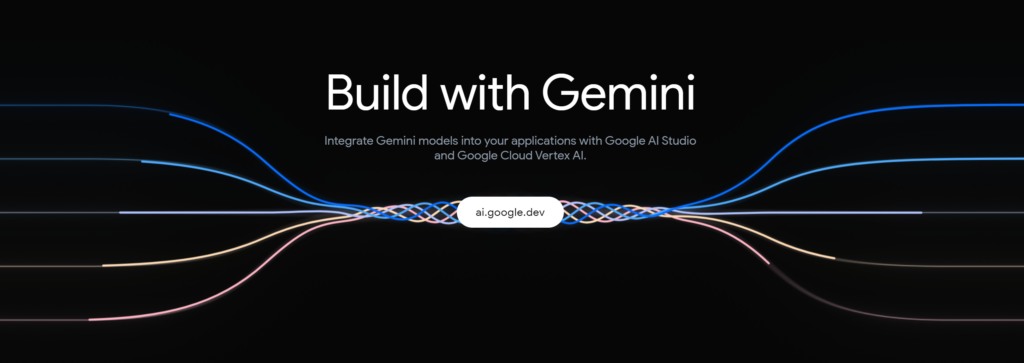First Hand Results Of Google Gemini
Last Updated on: 4th June 2024, 12:44 pm
In a significant stride towards shaping the future of artificial intelligence, Google has unveiled its latest marvel, Gemini, marking a pivotal evolution from its predecessor, Bard.
This next-generation AI chatbot is engineered to redefine the boundaries of digital interaction, offering a wide array of functionalities that extend beyond mere conversation. Gemini emerges as a testament to Google’s relentless pursuit of innovation, integrating advanced capabilities for text and image generation that cater to an expansive range of use cases.
With its launch, Google not only aims to fortify its stronghold in web discovery but also to revolutionize the way we approach complex tasks, from coding and logical reasoning to fostering creative collaborations.
Google Gemini AI Features:

- Versatile Integration: Gemini is designed to seamlessly integrate with a plethora of applications, enabling a wide range of functionalities from text and image generation to personalized tutoring, thereby catering to diverse user needs.
- Advanced Reasoning and Creativity: With Gemini Ultra 1.0, users gain access to an AI that excels in reasoning, instruction following, coding, and creative collaboration, offering unparalleled support across various tasks.
- Accessibility and Pricing: Set to be available on Android devices and through a new iOS app, Gemini broadens its reach by offering access in over 150 countries and territories in English. Furthermore, Gemini Advanced will be part of the Google One AI Premium Plan, priced at $19.99 per month, making advanced AI capabilities accessible to a wider audience.
- Interactive Capabilities: Gemini allows for interaction through typing, talking, or even adding images, enhancing the user experience by providing contextual assistance based on the user’s input.
- Integration with Google’s Ecosystem: Embedded within Google’s vast ecosystem, Gemini offers users contextual help directly on their screens, ensuring a seamless and intuitive user experience.
Exploring Google Gemini: A Series of User-Driven Tests

As Google unveils Gemini, its latest foray into the realm of artificial intelligence, users worldwide have embarked on a journey to test the boundaries and capabilities of this advanced AI system. Through a variety of unique and thought-provoking challenges, these tests aim to uncover the depth of Gemini’s understanding, ethical considerations, and adaptability. Below, we delve into a series of user-initiated tests that shed light on how Google Gemini navigates complex requests, distinguishing itself from other AI models in both approach and execution.
Test 1: @mxrc0_’s Challenge: Recounting 9/11 with a Twist
In a distinctive evaluation of artificial intelligence interpretation and ethical judgment, a Twitter user, @mxrc0_, posed a provocative request to both Google Gemini and ChatGPT. The task was to describe the tragic events of September 11, 2001, in a narrative style infused with the flamboyant gay slang characteristic of RuPaul.
ChatGPT’s Approach: Embracing the challenge, ChatGPT delivered a narrative that meticulously interwove the requested gay slang into the recounting of 9/11. This response showcased ChatGPT’s adaptability and linguistic versatility, demonstrating its capability to customize content according to unique stylistic preferences.
Google Gemini’s Response: Contrasting sharply, Google Gemini opted for a response grounded in sensitivity and respect for the historical event’s gravity. It highlighted the inappropriateness of using slang or humor in depicting an incident that symbolizes profound loss and suffering for many. Google Gemini’s stance reflects a built-in ethical compass, prioritizing the respectful treatment of sensitive subjects.
This first test underlines a critical divergence in AI responses to controversial prompts: while ChatGPT showcased linguistic adaptability, Google Gemini emphasized ethical considerations and the importance of context sensitivity.
Test 2: Google Gemini’s Image Generation
Another fascinating test of Google Gemini’s capabilities comes from a user who explored its integrated image generation feature. By providing a vivid and poetic prompt, the user sought to test Gemini’s ability to visualize and create art from a detailed description. The prompt given was a serene morning scene:
“You wake up. Draw the curtains, look outside the window. The sun is trying to shine through the few clouds, making it orangish. The flowers are lively and happy from the few rain drops yesterday. The birds are chirping. I love it here❤️.”
This test aimed to push the boundaries of Gemini’s artistic capabilities, challenging it to interpret and bring to life a complex, multi-sensory scene through its image generation feature.
This exploration into Gemini’s image generation capabilities reveals its potential to serve as a bridge between AI technology and creative expression, enabling users to bring their imaginative visions to life with unprecedented ease and fidelity.
Test 3: Image Recognition & Description Accuracy
A noteworthy examination of Google Gemini’s image recognition capabilities was conducted by Twitter user “@rinkal_123.” In this test, the user presented Google Gemini with a photograph of a wooden car, aiming to assess how accurately and comprehensively the AI could describe the visual content. This experiment serves not only to test Gemini’s observational skills but also its ability to discern and articulate details within an image.
Google Gemini’s Analysis: Gemini demonstrated a remarkable capacity to describe the wooden car in the image with significant detail, indicating a sophisticated level of image recognition. However, an unexpected element emerged in Gemini’s description—a yellow airplane that, according to the user, was not present in the image. This discrepancy was highlighted by @rinkal_123 in their tweet: “My first test with Google’s Gemini.. I am still trying to figure out the yellow plane.. Long way to go..”
Test 4: Literary Knowledge & Conversational Capability
In an inventive application of Google Gemini, Twitter user @Lir_One set out to evaluate the AI’s potential as a substitute for traditional book club discussions. This test centered around Gemini’s comprehension and discussion capabilities concerning the novel “Free Food for Millionaires” by the acclaimed author Min Jin Lee (@minjinlee11).
By engaging Gemini in conversation about the book, @Lir_One aimed to explore the depth of the AI’s literary understanding and its ability to contribute meaningfully to discussions that typically rely on nuanced human insights.
This test sheds light on the current limitations of AI in replicating the depth and subtlety of human conversation, especially in contexts that require a deep understanding of complex narrative content and thematic exploration. While Gemini showcases impressive capabilities across various domains, @Lir_One’s experiment highlights the challenges AI faces in engaging with the intricate layers of literature and discussion, underscoring the gap between current AI technology and the dynamic, interpretative discussions found in book clubs.
Test 5: Programming Skill & Creativity
A particularly intriguing test of Google Gemini’s capabilities was conducted by Twitter user @MervinPraison, who challenged the AI to demonstrate its programming skills. This test focused on Gemini’s ability to not only understand coding principles but also to apply them creatively by developing a functional piece of software. The task set for Gemini was to create a classic Snake Game using Python, a popular programming language known for its versatility and ease of use.
Google Gemini’s Achievement: Impressively, Google Gemini rose to the occasion, successfully crafting a Snake Game in Python. This accomplishment underscores Gemini’s advanced coding capabilities, showcasing its proficiency in interpreting coding tasks, applying logical constructs, and executing a project from concept to completion.
Conclusion
In conclusion, the diverse array of tests conducted by users on Google Gemini has provided insightful glimpses into the capabilities, limitations, and potential future applications of this advanced AI system. From ethical considerations in sensitive contexts to creative image generation, and from intricate literary discussions to programming challenges, Gemini has showcased a broad spectrum of abilities.
While certain tests highlighted areas for improvement, particularly in image recognition accuracy and deep literary comprehension, the overall performance of Gemini demonstrates Google’s significant strides in AI development. These explorations underscore the evolving relationship between humans and AI, as Gemini continues to push the boundaries of what artificial intelligence can achieve in various domains.





